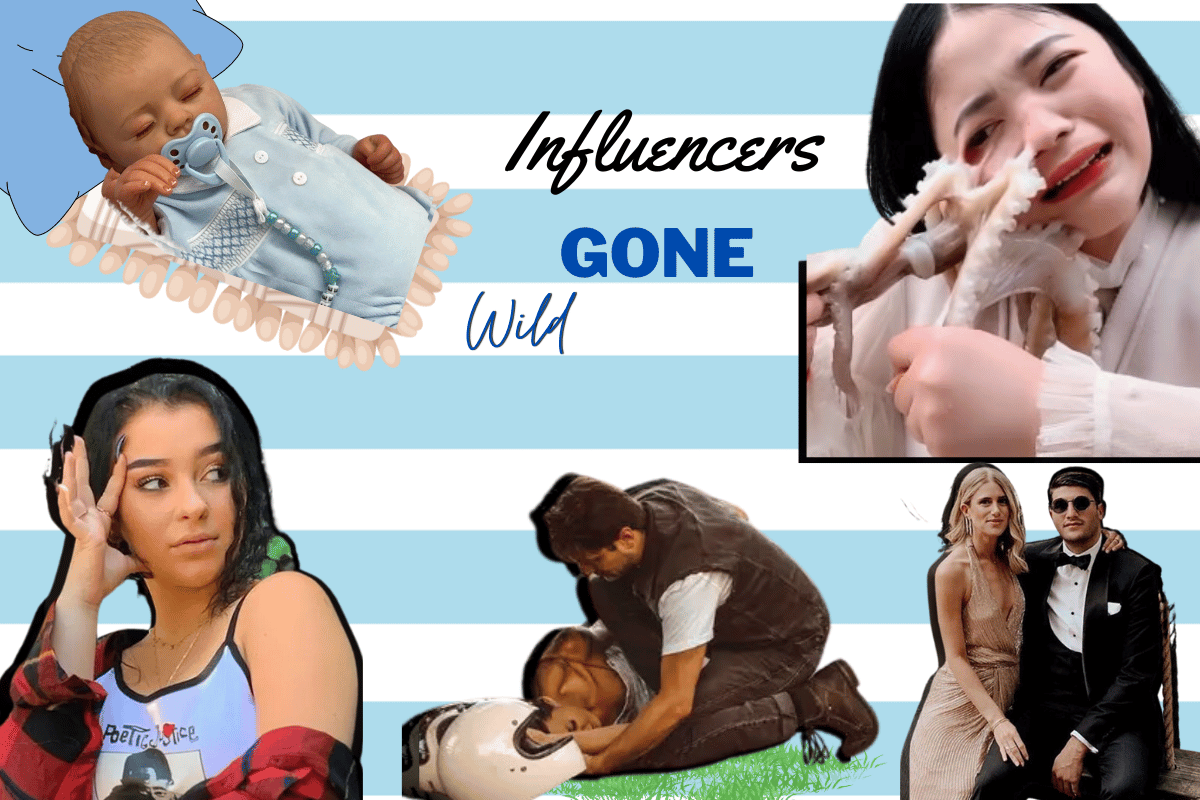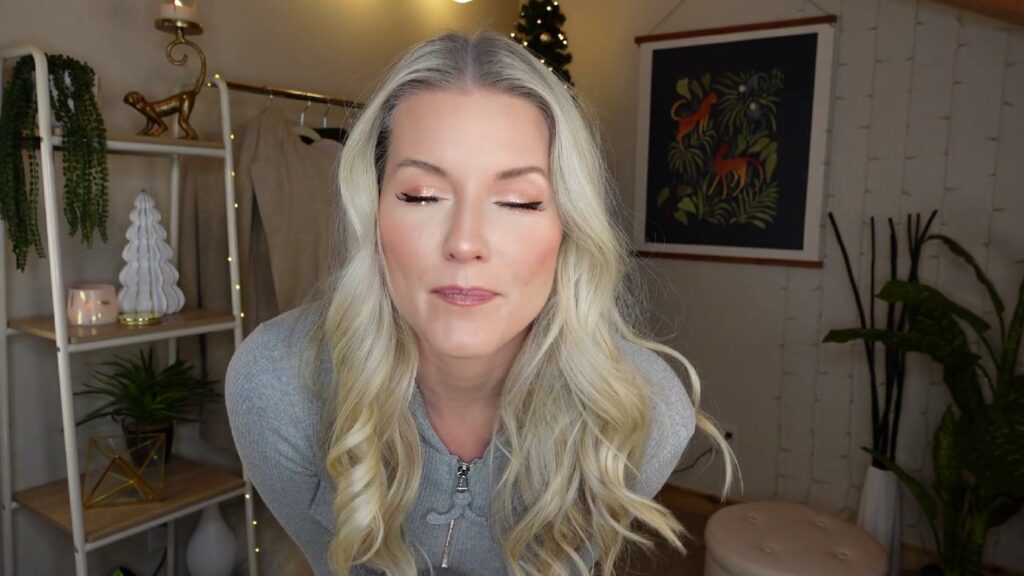Why Do They Do It? Influencers Gone Wild: The Dark Side
Are influencers truly wielding their power responsibly, or are some spiraling into a vortex of outrageous behavior for fleeting fame? The answer is a resounding call for accountability in the digital age.
The digital landscape is rife with individuals vying for attention, and the term "influencers gone wild" has become increasingly prevalent. It describes a disturbing trend: social media personalities engaging in shocking, controversial, and often ethically questionable conduct to amass followers and boost their online presence. This can manifest in a variety of ways, from posting sexually suggestive material and making inflammatory or offensive statements to participating in dangerous stunts solely for the sake of virality.
| Category | Details |
|---|---|
| Term | "Influencers Gone Wild" |
| Definition | Outrageous and controversial behavior by social media influencers to gain attention. |
| Examples | Explicit content, inflammatory statements, dangerous stunts. |
| Contributing Factors | Competition, changing social media landscape, lack of regulation. |
| Negative Consequences | Spreading misinformation, promoting unhealthy behavior, eroding trust. |
| Solutions | Education, guidelines, accountability, support for genuine influencers. |
| Reference | FTC Guidelines for Influencers |
The rise of this phenomenon is fueled by a complex interplay of factors. First and foremost is the relentless pressure to stand out. In a saturated market where countless individuals are vying for eyeballs, the temptation to resort to extreme measures becomes almost irresistible for some. As social media evolves, what once garnered attention authentic storytelling and relatable experiences now struggles to compete with the shock value of sensationalistic content. This shift has incentivized certain influencers to abandon ethical boundaries in pursuit of fleeting viral moments.
- Decoding Rulz Telugu S New 2024 Full What You Need To Know
- Unveiling Vegas 30 Whats Next For Las Vegas Future
However, this "anything goes" approach carries significant repercussions. The proliferation of misinformation, the normalization of unhealthy or dangerous behaviors, and the general erosion of trust in the influencer community are just some of the negative outcomes. Furthermore, the noise created by these "wild" influencers drowns out the voices of genuine, ethical creators who are striving to make a positive impact on the world.
Addressing this growing problem requires a multi-pronged approach. Educating influencers about the potential harms of their actions is a crucial first step. Simultaneously, establishing clear ethical guidelines and enforcing accountability for violations are essential. But perhaps the most effective solution lies in actively supporting and amplifying the voices of authentic influencers who are committed to using their platforms responsibly and for the greater good.
In the multifaceted world of social media, the phrase "influencers gone wild" has become alarmingly common. It refers to the shocking and controversial behavior some influencers display in their pursuit of attention and more followers. This behavior is varied, from posting explicit photos and videos, making inflammatory statements, or participating in dangerous stunts that risk life and limb.
- All About Meghan Markles Feet Size Shape More Photos
- The Truth About Jace Normans Wife Dating Life More
- Attention-Seeking: Influencers may resort to extreme measures to gain visibility and engagement, such as staging elaborate pranks or challenges.
- Misinformation: Sensationalistic content can lead to the spread of false or misleading information, including conspiracy theories and unsubstantiated health claims.
- Erosion of Trust: Outrageous behavior damages the credibility of influencers and the industry as a whole, making it harder for consumers to trust endorsements.
- Promotion of Unhealthy Behavior: Influencers may promote risky or harmful activities for the sake of content, such as extreme dieting, dangerous challenges, or the use of unregulated products.
- Competition: The intense competition on social media drives some influencers to adopt extreme tactics, pushing boundaries to stay relevant and gain followers.
- Lack of Regulation: The absence of clear guidelines and enforcement mechanisms enables influencers to push boundaries, creating a permissive environment for unethical behavior.
- Ethical Concerns: The pursuit of fame and fortune can compromise ethical considerations and social responsibility, leading influencers to prioritize personal gain over the well-being of their audience.
The key aspects discussed above paint a complex picture of "influencers gone wild," highlighting how interwoven attention-seeking, misinformation, trust erosion, unhealthy behavior promotion, intense competition, regulatory gaps, and ethical concerns are. They all significantly affect both influencers and society.
Attention-seeking is a defining characteristic of the "influencers gone wild" phenomenon. In the hyper-competitive landscape of social media, influencers are constantly vying for attention and engagement. This relentless pursuit can drive them to adopt increasingly extreme tactics to capture the fleeting interest of online audiences.
The motivations behind this behavior are diverse. For some, it stems from a deep-seated need for validation and approval from their followers, a constant seeking of external affirmation. Others see it as a means to an end, a calculated strategy to promote their personal brand or shill products. And then there are those who intentionally court controversy, knowing that even negative attention can translate into increased visibility and notoriety.
Regardless of the underlying motivation, the consequences of attention-seeking behavior can be far-reaching. It can contribute to the spread of misinformation, normalize unhealthy or dangerous behaviors, and erode trust in the influencer community as a whole. Moreover, it creates a climate where genuine, authentic voices struggle to be heard above the cacophony of sensationalism.
Addressing this issue requires a multi-faceted approach. Educating influencers about the potential harms of their actions is paramount. Establishing clear ethical guidelines and enforcing accountability for violations are also essential. But perhaps the most crucial step is to cultivate a culture that values authenticity, integrity, and responsible content creation over fleeting viral fame.
Ultimately, the most effective way to combat the negative effects of attention-seeking behavior is to champion and support those influencers who are committed to using their platforms to make a positive difference in the world.
Sensationalistic content is the lifeblood of the "influencers gone wild" phenomenon. Driven by a relentless pursuit of attention and engagement, these influencers often resort to posting false, misleading, or outright fabricated information to generate controversy and attract a wider audience.
- Deliberate Deception: Influencers may intentionally spread false information, such as fake news or conspiracy theories, to gain attention or promote a particular agenda.
- Unverified Claims: Influencers may share information without verifying its accuracy, potentially misleading their followers with unsubstantiated rumors or biased reports.
- Misleading Headlines: Influencers may use sensationalistic headlines to attract clicks, even if the content of the article does not support the claims made, resulting in clickbait and disappointment.
- Confirmation Bias: Influencers may selectively share information that confirms their own beliefs or biases, creating echo chambers and polarizing their audiences, leading to a distorted view of reality.
The consequences of spreading misinformation are profound and far-reaching. It can erode trust in public institutions, damage reputations, and even incite violence. In the context of "influencers gone wild," the dissemination of false information can further undermine the credibility of the influencer community and make it increasingly difficult for authentic voices to be heard.
Combating misinformation requires a concerted effort from all stakeholders. Influencers must be educated about the importance of fact-checking and responsible content creation. Social media platforms must implement stricter policies to identify and remove false or misleading content. And consumers must become more discerning consumers of information, developing critical thinking skills to evaluate the sources they encounter online.
Ultimately, the most effective way to combat misinformation is to support and amplify the voices of those influencers who are committed to sharing accurate, reliable, and evidence-based information with their audiences.
The erosion of trust is a critical concern within the realm of "influencers gone wild." When influencers engage in shocking, controversial, or otherwise unethical behavior, they not only damage their own reputation but also undermine the credibility of the entire influencer marketing industry.
This erosion of trust stems from a variety of factors. First and foremost, it demonstrates that some influencers are willing to prioritize personal gain over the well-being and best interests of their followers. Second, it suggests a lack of integrity and reliability, making it difficult for audiences to discern between genuine endorsements and self-serving promotions. Third, it creates a climate of skepticism that makes it challenging for authentic influencers to connect with their audiences and share valuable insights.
The consequences of this erosion of trust are significant. It can make it more difficult for influencers to build and maintain a loyal following. It can also damage the reputation of the influencer marketing industry, making brands hesitant to partner with influencers for fear of negative associations. Furthermore, it can contribute to a growing sense of cynicism and distrust among consumers, making them less likely to engage with online content in general.
Restoring trust in the influencer marketing industry requires a comprehensive and sustained effort. Influencers must be educated about the importance of ethical behavior and responsible content creation. Clear guidelines and standards must be established to govern influencer conduct. And mechanisms must be put in place to hold influencers accountable for their actions.
Ultimately, the most effective way to rebuild trust is to champion and support those influencers who are committed to building authentic relationships with their followers, providing valuable and unbiased content, and acting with integrity in all their online interactions. These are the influencers who will be able to restore confidence in the power of online influence and make a positive impact on the world.
The promotion of unhealthy behavior poses a grave threat within the context of "influencers gone wild." When influencers endorse risky or harmful activities, they jeopardize the well-being of their followers and tarnish their own credibility.
The reasons behind such endorsements vary. Some influencers may be driven by a desire for attention and engagement, believing that shock value will translate into increased followers and views. Others may be motivated by financial incentives, willingly promoting harmful products or services in exchange for lucrative sponsorships. Still others may simply be unaware of the potential consequences of their actions, lacking the knowledge or critical thinking skills to assess the risks involved.
Regardless of the motivation, the promotion of unhealthy behavior can have devastating consequences. It can lead to physical and mental health problems, and in some cases, even death. Moreover, it erodes trust in the influencer community and makes it increasingly difficult for genuine influencers to be heard.
Addressing this issue requires a multi-faceted approach. Influencers must be educated about the potential harms of promoting unhealthy behavior and the importance of responsible content creation. Clear ethical guidelines must be established to prohibit the endorsement of harmful activities. And social media platforms must implement stricter policies to remove content that promotes or glorifies unhealthy behavior.
Ultimately, the most effective way to combat the promotion of unhealthy behavior by influencers is to support and amplify the voices of those who are committed to promoting healthy, positive lifestyles and using their platforms to empower their followers to make informed decisions about their well-being.
Competition is a relentless force in the social media arena, and it plays a significant role in fueling the "influencers gone wild" phenomenon. In this highly competitive environment, influencers are constantly battling for attention, engagement, and ultimately, a larger share of the online pie.
This intense competition can drive some influencers to adopt extreme tactics in an effort to stand out from the crowd. One common strategy is to post outrageous or controversial content, ranging from explicit photos and videos to inflammatory statements and dangerous stunts. While such content may generate short-term attention, it often comes at the cost of long-term reputation and credibility.
Another tactic employed by some influencers is the purchase of fake followers or engagement. This deceptive practice creates the illusion of popularity and success, but it is ultimately unsustainable. Influencers who rely on fake followers are not building a genuine audience, and they risk losing credibility if their deception is exposed.
The pressures of social media competition can also lead to burnout and mental health problems. Influencers who are constantly striving to keep up with the latest trends and create compelling content can experience chronic stress, anxiety, and depression. This, in turn, can lead to poor decision-making, such as posting inappropriate content or engaging in risky behavior.
It is essential to recognize that influencers are human beings, subject to the same pressures and vulnerabilities as anyone else. While competition is a natural part of the social media landscape, it is crucial to promote a culture that values authenticity, ethical behavior, and mental well-being over fleeting fame and superficial success.
The absence of robust regulation is a significant contributing factor to the "influencers gone wild" phenomenon. Without clear guidelines and effective enforcement mechanisms, influencers are often free to push the boundaries of acceptable behavior in their pursuit of attention and followers.
This lack of regulation can have far-reaching consequences. It can lead to the spread of misinformation, as influencers are not held accountable for the accuracy of the information they share. It can promote unhealthy behavior, as influencers are free to endorse harmful products or activities without facing repercussions. And it can erode trust in the influencer community, as audiences become increasingly skeptical of the motives and integrity of online personalities. In some cases, the lack of regulation can even facilitate criminal activity, such as fraud or the exploitation of vulnerable individuals.
Addressing this issue requires a concerted effort from all stakeholders. Social media platforms must implement stricter policies to govern influencer behavior and remove content that violates community standards. Governments must establish clear legal frameworks to regulate influencer marketing and protect consumers from harmful or deceptive practices. And industry organizations must develop ethical codes of conduct to promote responsible behavior among influencers.
Ultimately, the most effective way to combat the negative effects of lack of regulation is to create a culture of accountability within the influencer marketing industry. This means that influencers must be held responsible for their actions by their followers, by brands, and by the law. By promoting transparency, ethical behavior, and responsible content creation, we can ensure that influencers use their power for good and that the influencer marketing industry is a force for positive change.
In the context of "influencers gone wild," ethical concerns emerge when the pursuit of fame and fortune overshadows ethical principles and social responsibilities. This ethical compromise manifests in several ways:
- Misleading or deceptive content: Influencers may promote products without disclosing paid partnerships, misleading followers about their true endorsements. They might exaggerate product benefits or make false claims.
- Promotion of harmful products/services: Some influencers promote unhealthy foods, gambling, or tobacco, prioritizing profit over well-being.
- Exploitation of followers: Influencers might manipulate followers into buying products or sharing personal information without consent, demonstrating a disregard for their audience's welfare.
The quest for fame and wealth can lead influencers to prioritize their interests over followers' needs. Clickbait and sensationalistic tactics attract attention, even if the information shared is inaccurate or misleading, undermining trust.
Ethical concerns in "influencers gone wild" are a serious issue. By compromising ethics, influencers damage their and the industry's credibility. Followers risk being misled, exploited, or harmed by deceptive content or dangerous product endorsements.
Influencers must remember their responsibility to followers. Honesty and transparency about brand relationships are essential, and promotion should only extend to products/services they genuinely support. They should also remain mindful of their content's impact, avoiding harmful or exploitative behavior.
The rise of "influencers gone wild," those engaging in extreme and controversial behavior on social media, has led to many questions and concerns. This section aims to address some common inquiries, shedding light on this complex issue.
Question 1: What factors contribute to the emergence of "influencers gone wild"?
Several factors drive this trend, including high competition for attention, fame and fortune aspirations, and the lack of clear ethics and regulations in the influencer marketing industry.
Question 2: What are the potential consequences of "influencers gone wild" behavior?
The outcomes can be severe, leading to the spread of false information, promotion of harmful products or actions, reduced trust in influencers, and the exploitation of followers.
Question 3: How does the pursuit of fame and fortune affect ethical considerations for influencers?
The desire for popularity and wealth can distort ethical thinking, causing influencers to prioritize their own gains over the best interests of their followers.
Question 4: What role does the lack of regulation play in this phenomenon?
The lack of guidelines and enforcement lets influencers test boundaries without significant consequences, promoting sensationalism and irresponsibility.
Question 5: How can we address the ethical concerns surrounding "influencers gone wild"?
A comprehensive approach is needed, including influencer education, ethical guidelines, transparency promotion, and accountability for influencers' actions.
Question 6: What are the implications for the influencer marketing industry and followers?
"Influencers gone wild" damages the industry's credibility and trustworthiness. Followers risk being misled, exploited, or exposed to harmful content.
Summary: "Influencers gone wild" is complex with diverse causes and consequences, highlighting the need for ethics, industry regulations, and careful decisions from influencers and followers. By addressing these, we can create a more responsible influencer marketing ecosystem.
Transition: This FAQ section has given insight into various aspects of "influencers gone wild." To explore further, let's delve into the motivations and strategies used by influencers pursuing attention and fame.
- Ralph Macchios Amazing Story From Karate Kid To Icon Updated
- Is Ricky Martin Dating News Love Life Current Status

Influencers Gone Wild Shocking Misconduct On Social Media

Influencers Gone Wild Shocking Misconduct & Unruly Behavior

Kat Wonders Galactic December Influencers Gonewild Hot Sex Picture